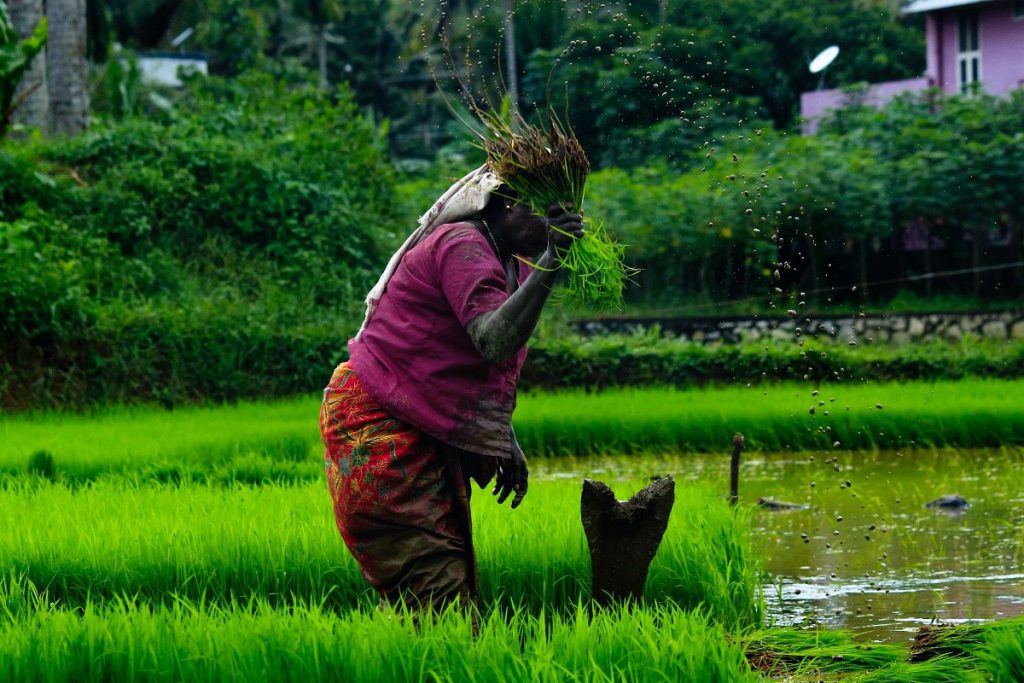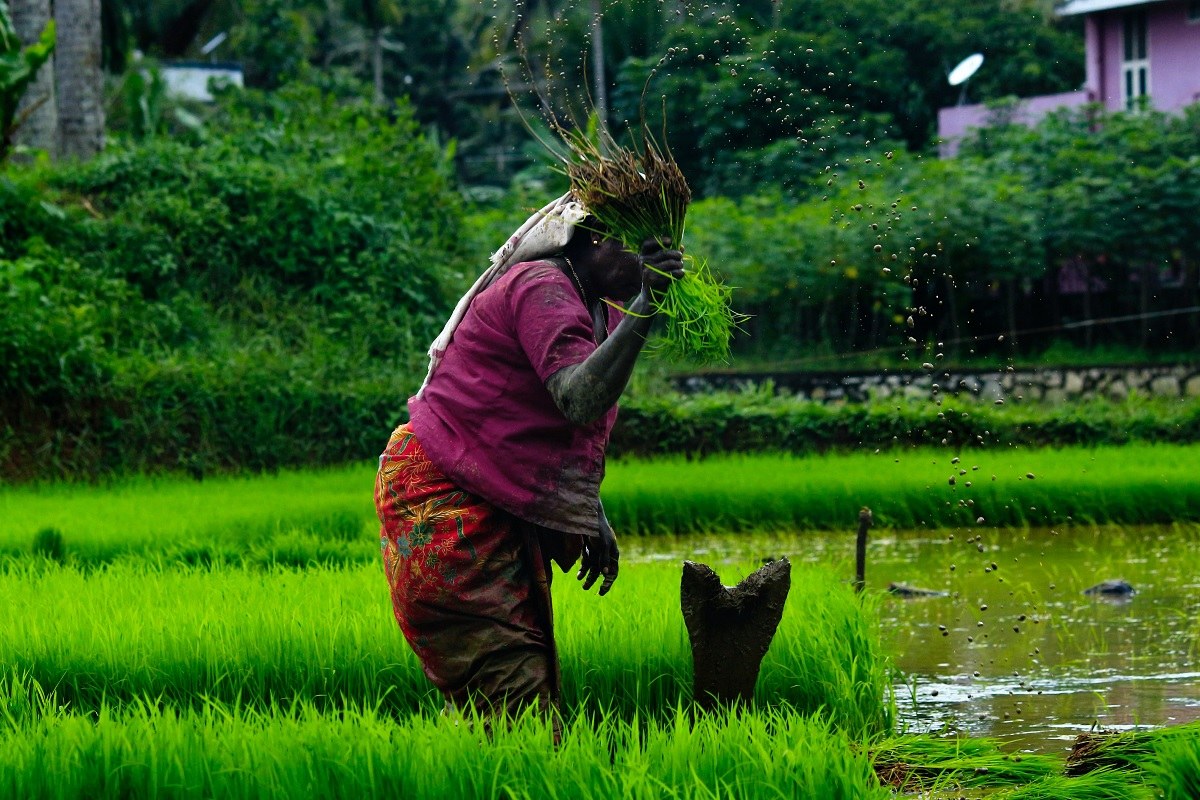Farm Reform Bills 2020: A Democratic Legislation?

Gunjan is an undergraduate Political Science student at Gargi College, University of Delhi. Sanandita is a postgraduate student of history from Presidency University, Kolkata

[responsivevoice_button voice=”US Female” buttontext=”Read out this Theel for me”]
Rajya Sabha passed two of the three contentious farm reform bills that have seen a widespread protest in recent weeks, particularly in Haryana and Punjab, where the ruling BJP has lost its ally Shiromani Akali Dal. Farmers in Haryana and Punjab blocked roads and burnt effigies in protest. Prime Minister Narendra Modi has reiterated that farmers will benefit from the changes, first mentioned as part of the Atmanirbhar Bharat Abhiyan package. The bills replace three ordinances promulgated earlier.
What Are These Ordinances About?
Agricultural economist, Sudha Narayanan, has simplified the names of these ordinances. She referred to “The Farmers Produce Trade and Commerce (Promotion and Facilitation) Ordinance, 2020” as the Agricultural Produce Market Committee (APMC) Bypass Ordinance. “The Essential Commodities (Amendment) Ordinance, 2020” as The Freedom of Food Stocking by Agribusinesses Ordinance, and “The Farmers (Empowerment and Protection) Agreement on Price Assurance and Farm Services Ordinance, 2020” as the Contract Farming Ordinance.
The first Bill talks about giving autonomy to the farmers to sell their produce at places other than the APMC-regulated mandis. So, if a farmer believes a better deal is possible with some other private buyer then he can take that option instead of selling in the APMC mandi. The second Bill proposes to allow economic agents to store food stocks freely without the fear of being prosecuted for hoarding. The third Bill provides a framework for farmers to enter into contract farming – that is- signing a written contract with a company to produce what the company wants in return for a healthy remuneration.
The idea with all three Bills is to liberalize the farm markets in the hope that doing so will make the system more efficient and allow for better price realizations for all concerned, especially the farmers. The government has said these reforms will accelerate growth in the sector through private sector investment in building infrastructure and supply chains for farm produce in national and global markets. The government believes this will help the small farmers who don’t have the means to either bargain for their produce to get a better price or invest in technology to improve the productivity of farms.
Why Are Farmers Protesting?
Farmers allege that in the name of “reforms”, the government is planning to discontinue the Minimum Support Price (MSP) regime. The Farmers’ Produce Trade and Commerce (Promotion and Facilitation) Ordinance aims at opening up agricultural sales and marketing outside the notified APMC mandis for farmers, removes barriers to interstate trade, and provides a framework for electronic trading of agricultural produce. It prohibits the state governments from collecting market fees, cess, or levy for trade outside the APMC markets.
- On the Need for an Income Support Scheme for Farmers
- The discourse of student protests and its anxieties in the capital
Removal of these taxes will be a huge disadvantage for farmers because with proper regulation in APMC Mandis, transactions are taken into account and MSP exists inside the Mandis. Outside these Mandis, there is no regulation, no proper treatment given to farmers, no MSP, which will lead to the exploitation of these farmers by big private companies as while buying outside these Mandis, the traders will not be required to pay any tax. Gradually, people will move away from Mandis and Mandis will start becoming redundant. Thus, once the Mandi system collapses, the assurance of the MSP that was given to the farmers will also collapse.
Another underlying structural problem is the lack of information with farmers, which inhibits their ability to make the best decision for themselves. For instance, how will an average farmer figure out the right price for his or her produce? Moreover, many small and marginal farmers are not much educated to engage in formal documentation with big companies. Misunderstanding of these documents by the farmers could lead to big legal battles against these multinational companies which the farmers cannot afford.
The problem also lies with assuming that giving farmers the autonomy to sell their produce outside these Mandis will increase the efficiency of the system. However, Devinder Sharma, Food and agricultural expert, points out that it is not possible for Indian farmers as 86% of the farmers are incapable of selling their product even from one district to another, so how can the government assume that the farmers would be able to sell their products from one state to another?
It must be noted that a similar model has completely failed in France and the US, owing to a large number of farmers’ suicide due to the monopoly given to multinational companies that are exploiting farmers, especially the small and marginal farmers who are suffering the most. Farmers’ suicide is increasing in India, at least 10,281 persons involved in the farm sector ended their lives in 2019, accounting for 7.4 percent of the total number of suicides in India which was 1,39,516, suggests the Accidental Deaths and Suicides in India report 2019 by the National Crime Records Bureau. Therefore, In a developing country like India, where farmers’ suicide in on the rise, instances from developed countries should be taken into account.
The Voice of Opposition Remained Unheard
The pandemonium that the Rajya Sabha witnessed on 22nd September 2020, was mainly due to the triviality that was shown to the dissent. Amidst of demonstrating protest against the farm bill, some of the Members of the House raised their demand to either dissolve the session or to appoint a select committee so that the bill is re-scrutinized; to which the Deputed Speaker disagreed. This incident was followed by the hurling and ripping up of the rule book by some of the members who vehemently opposed the motion. The mic of the Deputy Speaker was broken in this uproar, also the live streaming of Rajya Sabha got muted. All these incidents provide enough evidence of the disturbance and the pace of its escalation. However, the deprecation of the opposition parties was highly undervalued. Like an award made of red ribbon, the members of the opposition were given solace by adjourning the House for 15 minutes. Soon after that, the session was again summoned and both the farm bills were passed by the upper house of the Parliament by voice votes and the arguments of the opposition were not entertained. Further, the Rajya Sabha suspended 8 of its members who were held liable for their disruptive behavior. The list of suspended MPs included Trinamool Congress’s Derek O’Brien, Aam Aadmi Party’s Sanjay Singh, Congress’s Rajeev Satav and CPM’s KK Ragesh.
- Governments pass the buck of suicides, every time
- Cooperative Farming: A way out of poverty for India farmers
It is to be noted here that similar instances of protests were also seen in the case of Right to Information Bill; although, a consensus was taken in this context through the voting procedure. Even in the case of the Surrogacy Bill in 2016, it was sent to 4 cities for inspection purposes. This time it appears that the House has failed to comprehend the importance of the scrutinization process. It is true that the ruling party does enjoy an absolute majority in the Parliament. Thus, this fact further augments the responsibilities of the Parliament to conduct impartial legislation. In light of the present scenario, all provisions of checks and balances seem volatile. Everything has now been reduced only to numbers. But the point that still remains blurred is, if the bill really had the support of the majority then why did Harivansh Narayan Singh repudiate the request of the opposition for physical voting?
The leaders of the Congress Party have decided to hold protest marches all over the country against these “black laws”. They announced that this year, 2nd October i.e. Gandhi Jayanti will be observed as “Kisan-Mazdoor bachao diwas” to create awareness against this dictatorial imposition. The other opposition party leaders have also united with the Congress and have appealed to the President Ramnath Kovind to return the farm bills to the Parliament for a reassessment.This event has been described as the “watershed moment for the history of Indian agriculture” by Prime Minister Narendra Modi. Although, the plausibility of this statement cannot be gauged at such an initial stage as it is going to be a time-tested process. In the end, it can be inferred that through the passing of these bills, the farmers feel robbed and exploited and their autonomy over land has been snatched away, with the privatization of agriculture coming into the forefront.








Good analysis